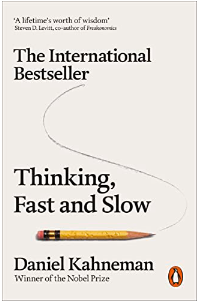(4 min read)
Good news – it’s not spending more money.
The key is to having better experiences – including on holiday – is to understand how we humans process memories. We don’t keep ‘snapshots’ of experiences in our memory banks. Instead, our memories are shaped by internal cognitive processes like perception, imagination, attitudes, beliefs, and semantic memory (our knowledge). We reconstruct memories by fitting them into our existing schemas. The more difficult this is, the more likely it is that some things will be forgotten or distorted.

Noble Prize-winning psychologist, Dr Daniel Kahneman, pointed out that we have two selves: the experiencing self and the remembering self. The experiencing self knows only the present moment, while the remembering self is a storyteller – “that was a good holiday” or “that was a bad flight”. (Read Daniel Kahneman’s great book, Thinking, Fast and Slow)
 When we assess an experience, we tend to forget or ignore its length. Instead, we rate the experience based on two key moments: the peak (the best or worst moment) and the ending.
When we assess an experience, we tend to forget or ignore its length. Instead, we rate the experience based on two key moments: the peak (the best or worst moment) and the ending.
What is the peak-end theory?
The peak-end theory explains our need to process thoughts and memories. Our brains are not like computers – it would be impractical to save every second of our lives into memory. Instead, our brain has methods for sorting, integrating and processing more efficiently. A by-product of this is the separation of the experiencing self and the remembering self.
Kahneman defined the peak-end rule: a psychological heuristic, or cognitive bias, where people judge an experience largely based on how they felt at its peak and at its end, rather than the total sum or average of every moment.

Kahneman and his colleagues conducted studies to support this. In one, two patients underwent the same uncomfortable medical procedure – a colonoscopy, would you believe! It lasted eight minutes for patient A and 24 minutes for patient B. While both reported similar pain levels overall, patient B’s procedure was three times as long. Surprisingly, patient A had the worst recollection. Although their procedure was shorter, they reported a higher degree of pain in the final minutes than patient B. Duration was less important than the unpleasant memory of what happened at the end.
Kahneman’s example supports the peak-end rule. For patient B, “the longer experience is perceived as less painful even though it includes more pain in total, but ends with a period of less intense pain,” (Müller et al., 2019, p. 2). Whether we are judging minutes or a lifetime, it is the most extreme experience and how the experience ends that instinctively matters to us.
Make your memories matter
So, how do you make sure you have a good holiday? Build in one special day, event, or experience during your holiday – the peak experience you’ll remember 10 years from now. And make sure you have a positive ending: save a special excursion or meal for the last day and make it a good one. Have a pleasant trip back – go on, book the nice taxi! You’ll soon forget the three-hour delay on the way out and arriving in the dark, in the rain!

We love behavioural science. We’ve studied it and we know it works. That’s why it’s at the core of our online cyber awareness training. No one wants their peak holiday memory to be the time when their phone was hacked, and they lost all their money. Why not contact us at Dit e-mailadres wordt beveiligd tegen spambots. JavaScript dient ingeschakeld te zijn om het te bekijken. to see how we can help your organisation gain better, long-term cyber security habits? And if you want to learn more about peak-end theory, you can read this article.
Sign up to get our monthly newsletter, packed with hints and tips on how to stay cyber safe.
 Mark Brown is a behavioural science expert with significant experience in inspiring organisational and culture change that lasts. If you’d like to chat about using Psybersafe in your business to help to stay cyber secure, contact Mark today.
Mark Brown is a behavioural science expert with significant experience in inspiring organisational and culture change that lasts. If you’d like to chat about using Psybersafe in your business to help to stay cyber secure, contact Mark today.